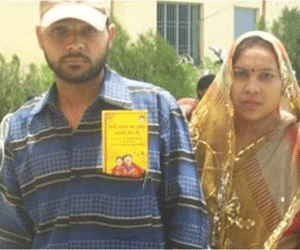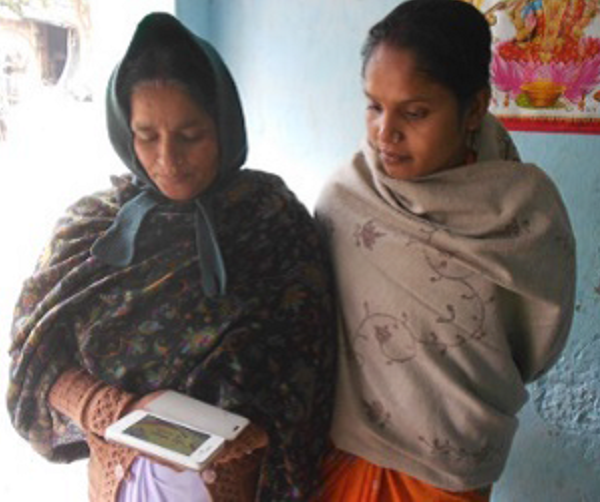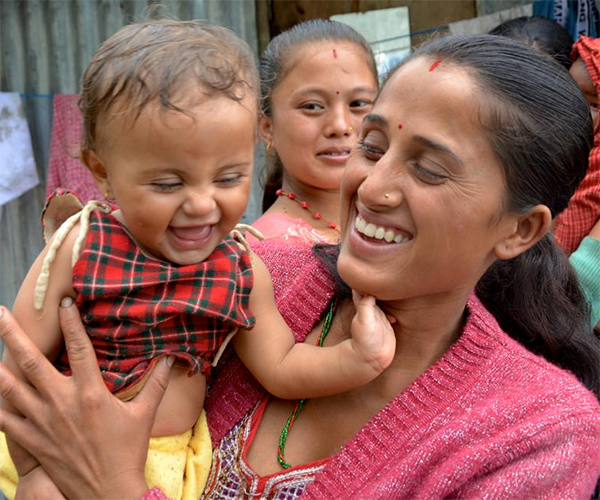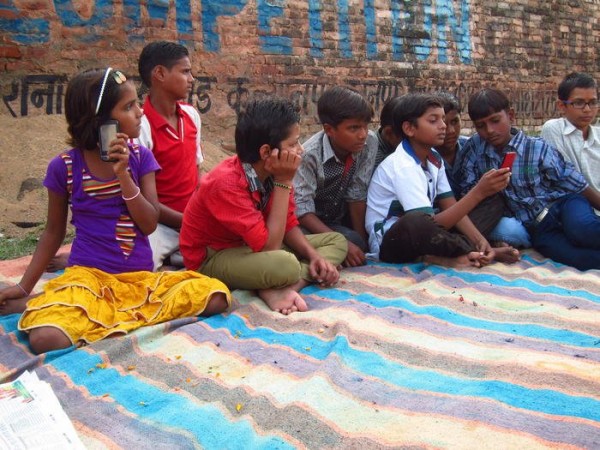Aligarh, an industrial town in Uttar Pradesh, India can now boast fourteen “Happy Dampatti,” couples who hold the key to five secrets of happiness. Life for these couples in the slums is not easy.
Incomes are often less than $75 per month and many residents have almost no formal education. But these challenging circumstances do not hold these couples back from achieving happiness.
What are the five secrets of a “Happy Dampatti”?
- Spousal communication about the family’s dreams
- Consistent use of contraceptives
- Immediate post-partum family planning
- Immediate post-abortion family planning
- Male responsibility in planning for the future
The fourteen couples in Aligarh were identified through the “Happy Dampatti” contest, a campaign that uses innovative marketing techniques to mobilize the community, engage the target audience directly with family planning services and seek and reward local role models. The contest was run by the Bill and Melinda Gates-funded five-year Urban Health Initiative (UHI). The Johns Hopkins Bloomberg School of Public Health Center for Communication Programs (JHU∙CCP) designed the “Happy Dampatti” contest to identify couples who have successfully adopted consistent family planning and publicized their stories using mass media to encourage behavior change.
After a successful pilot run of the “Happy Dampatti” contest earlier this year in Agra, UHI has scaled up the project in the city of Aligarh. Three “Happy Dampatti” contests were held in Aligarh slums during June 2011, and four more contests will be held in other slums of Aligarh starting in September 2011.
JHU∙CCP estimates that over 210,000 people were reached through the contests directly and an additional million people were reached through related mass media. In each slum cluster, the contest was widely publicized through wall paintings, billboards, banners, rickshaw microphone announcements and stilt walkers. Promotional SMSs were sent to over 2000 mobile phone users and the contest signature jingle was set as the ringtone on the cell phones of all staff.
Peer Educators visited the communities to promote the contest and more than 5000 couples participated. The program seeks to engage the community and draw people out of their homes for counseling on family planning and referrals to service, so couples had to visit the colorful “Happy Dampatti” enrollment camps to officially enroll in the contest. At these camps, trained staff counseled couples on family planning, assisting with choosing a method and promoted inter-spousal dialogue. Couples were referred to family planning services at local facilities.
Existing successful contraceptive users recorded their stories about accepting family planning and overcoming barriers on video. These videos were judged by an independent jury who selected 12 finalists. At the “Happy Dampatti” main event, five overall winners were chosen through games and competitions, which were attended by over 3000 people, as well as by senior government officials, public and private health care providers and the media.
The “Happy Dampatti” contest would not have been such a success without the strong partnership of stakeholders who participated in its implementation, including government officials, NGOs, private corporations and media.
Most importantly, the contest has succeeded in getting people to talk more openly about family planning; increased demand for family planning services is expected to follow.
Learn more about the Urban Health Initiative.





